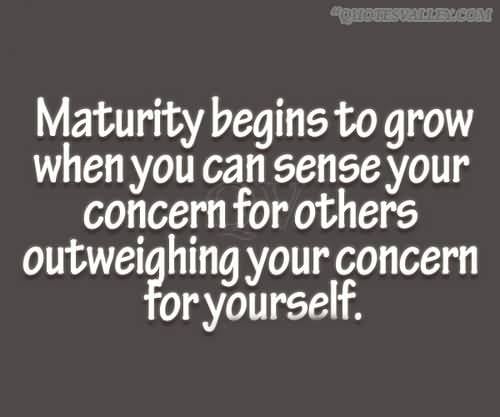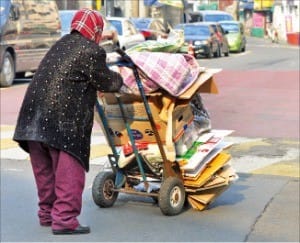"We are not troubled by things, but by the opinions, we have about things." These words of wisdom from the past give us one good reason to spend time talking with others about the things that matter in life instead of the small talk that takes most of our time in conversation. In the Catholic Times, a member of the Christian Life Community CLC reminds us of this in his article on the spirituality of the community.
Late at night, the two-hour Christian Life Community (CLC) online meeting ended. Coronavirus Infection-19 (Corona19) makes meetings difficult, but non-face-to-face meetings through video conferencing continue every week. At the gathering, they take time to look at how Jesus was with them and sharing with others what he was asking of them. Above all, he was grateful for the understanding of the community as they shared how the community would help with the difficulties of a member.
CLC members form a small community of about 10 people, each with their own special work and family in the world. Through regular meetings, once a week, they share their spirituality, community, and apostolic efforts—specifically, contemplative prayer, prayers of reflection, and apostolic life. When you share with each other like this, the other person's experience can be my experience, and you can discover aspects of the spiritual life that were unknown through other members. Each individual gains from the experience of wisdom and gratitude of the community.
Although they form a community together, members have different lengths of time in community, ages, occupations, backgrounds, etc., and their views on life are slightly different. They each have their own unique light and darkness.
Although each person's situation is different, in Jesus they are one and see new life through his love, and desire to share, empty themselves, be of service in love to the world. They realized God's love deeply through Jesus and they know it is through community rather than alone.
Of course, being together as a community is not always romantic or easy. Sometimes there are small conflicts, tensions, and discomforts in the community. And the spiritual advice exchanged within the community for mutual growth can be painful and uncomfortable. The writer mentions he was once upset that the advice received from the community made known his deficiency and judged him. He just wanted to hear good things, comfort, and encouragement.
However, as the community gathered in prayer he trusted in the Holy Spirit to lead, and as he experienced the community's love for him, he felt comfortable and listened to spiritual advice. With the spread of such enlightenment and trust in the community, advice, challenges, comfort, and encouragement given to each other have become more comfortable and liberating. Based on the love and sincerity experienced, the community grows and matures together.
Jesus also came to this world and formed a community. It wasn't just because they needed a hand. Rather, proclaiming the Gospel in the world must have started with love and growth in a small community. It seems that forming a community of love with disciples who were different, weak, and sometimes selfish, was the starting point of creating the kingdom of God in the world. The disciples went out to the world with the experience of love and growth learned through the community, and again formed a community and preached the gospel.
Today, an SNS message came encouraging him to faithfully live the spiritual life. This is because we remind each other not to become lax. He feels the growth he has made in his journey towards God was made because of the community. It is a very precious community.
Late at night, the two-hour Christian Life Community (CLC) online meeting ended. Coronavirus Infection-19 (Corona19) makes meetings difficult, but non-face-to-face meetings through video conferencing continue every week. At the gathering, they take time to look at how Jesus was with them and sharing with others what he was asking of them. Above all, he was grateful for the understanding of the community as they shared how the community would help with the difficulties of a member.
CLC members form a small community of about 10 people, each with their own special work and family in the world. Through regular meetings, once a week, they share their spirituality, community, and apostolic efforts—specifically, contemplative prayer, prayers of reflection, and apostolic life. When you share with each other like this, the other person's experience can be my experience, and you can discover aspects of the spiritual life that were unknown through other members. Each individual gains from the experience of wisdom and gratitude of the community.
Although they form a community together, members have different lengths of time in community, ages, occupations, backgrounds, etc., and their views on life are slightly different. They each have their own unique light and darkness.
Although each person's situation is different, in Jesus they are one and see new life through his love, and desire to share, empty themselves, be of service in love to the world. They realized God's love deeply through Jesus and they know it is through community rather than alone.
Of course, being together as a community is not always romantic or easy. Sometimes there are small conflicts, tensions, and discomforts in the community. And the spiritual advice exchanged within the community for mutual growth can be painful and uncomfortable. The writer mentions he was once upset that the advice received from the community made known his deficiency and judged him. He just wanted to hear good things, comfort, and encouragement.
However, as the community gathered in prayer he trusted in the Holy Spirit to lead, and as he experienced the community's love for him, he felt comfortable and listened to spiritual advice. With the spread of such enlightenment and trust in the community, advice, challenges, comfort, and encouragement given to each other have become more comfortable and liberating. Based on the love and sincerity experienced, the community grows and matures together.
Jesus also came to this world and formed a community. It wasn't just because they needed a hand. Rather, proclaiming the Gospel in the world must have started with love and growth in a small community. It seems that forming a community of love with disciples who were different, weak, and sometimes selfish, was the starting point of creating the kingdom of God in the world. The disciples went out to the world with the experience of love and growth learned through the community, and again formed a community and preached the gospel.
Today, an SNS message came encouraging him to faithfully live the spiritual life. This is because we remind each other not to become lax. He feels the growth he has made in his journey towards God was made because of the community. It is a very precious community.




